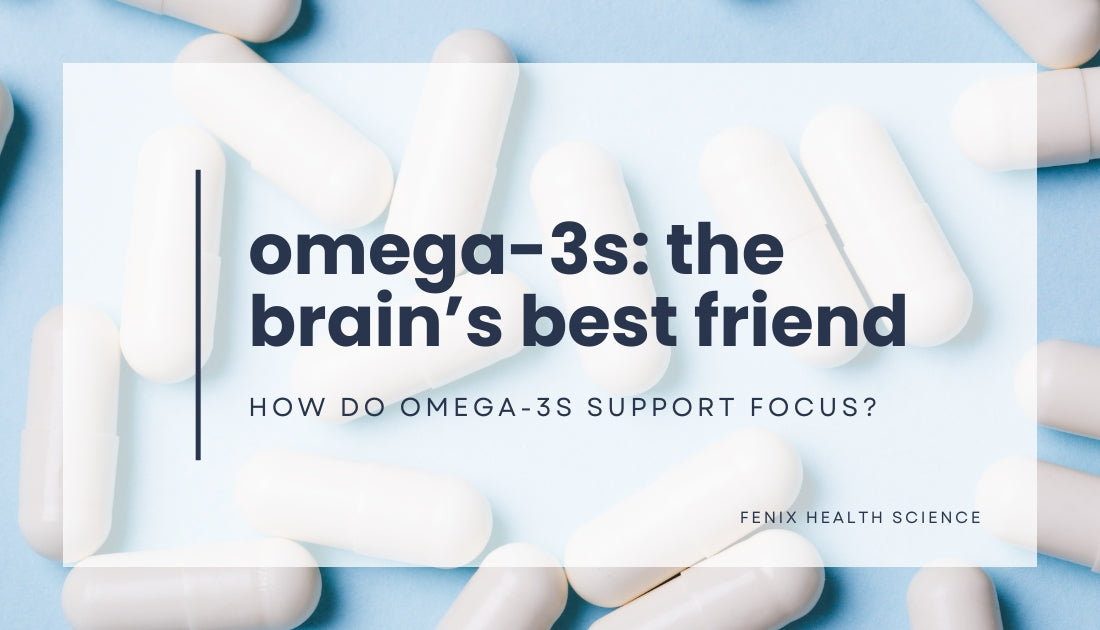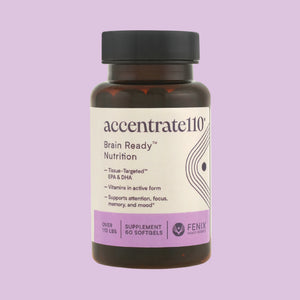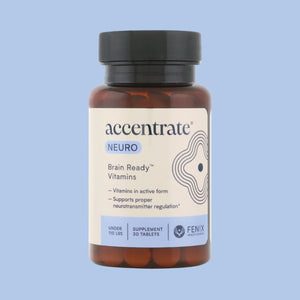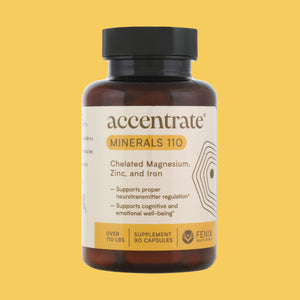Omega-3s: The Brain's Best Friend

Let’s embark on our mental wellness journey as we explore how nutrients affect our focus and emotions. Omega-3 fatty acids, especially EPA and DHA, are our brains’ best friend and the most studied for brain health. These essential fatty acids are vital for keeping our minds sharp and emotions in check. They help us concentrate better and stay focused. Learning about omega-3s gives us insights into boosting our brainpower and emotional well-being and supporting mental clarity and cognitive function.
How do omega-3s work in the brain?
Omega-3s support the brain by improving cell membrane fluidity, which is important for neurotransmitter signaling and nerve function.1 The dynamic duo of essential fatty acids, EPA and DHA, collaborate to support normal neurological function. EPA acts as a guardian of motivation and reward, ensuring dopamine signaling pathways remain responsive. Meanwhile, DHA, the primary omega-3 resident of the brain, fine-tunes the fluidity of cell membranes, refines neurotransmitter release, and optimizes neuronal signaling. Together, EPA and DHA form an indispensable partnership, nurturing our mental well-being, making omega-3s the brain's most trusted companion.
What happens when we don't get enough omega-3s?
When we skimp on omega-3s—whether through our diet or supplements—it's like dimming the lights on our brain's communication network, known as neurotransmission. This network is crucial for orchestrating our body's actions, thoughts, and emotions.2,3 Without sufficient omega-3 levels, neurons struggle to produce serotonin, a key player in regulating mood and emotional balance.2 Additionally, inadequate omega-3 intake can lead to deformed dopamine receptors, resulting in a dip in dopamine levels.2 Both of these neurotransmitters are vital to our metal well-being since serotonin impacts our mood and emotions and dopamine plays a role in happiness, satisfaction, and motivation.
Forms for Proper Absorption in the Brain
As we learn about omega-3 fatty acids and their impact on brain health, it becomes apparent that adequate intake of these essential nutrients is vital. Not getting adequate intake not only dims the lights on our brain's communication network but also disrupts the delicate balance of neurotransmitters crucial for mental well-being.
For those looking to supplement their diets, there are three forms of essential fatty acids to consider: triglyceride, free fatty acid, and phospholipid forms. Extensive research endeavors have delved into uncovering the most absorbable form, with a notable preference emerging for the phospholipid form, particularly in its journey to the brain. Accentrate® has harnessed the latest scientific insights, formulating our product with EPA and DHA in the phospholipid form—the optimal state for the brain's uptake.
Join us in prioritizing mental well-being with Accentrate®—your brain's trusted companion on the path to mental health.
These statements have not been evaluated by the Food and Drug Administration. This product is not intended to diagnose, treat, cure, or prevent any disease.
References:
[1] Heron, D. S., Shinitzky, M., Hershkowitz, M., & Samuel, D. (1980). Lipid fluidity markedly modulates the binding of serotonin to mouse brain membranes. Proceedings of the National Academy of Sciences of the United States of America, 77(12), 7463–7467. https://doi.org/10.1073/pnas.77.12.7463
[2] Greenblatt, J. M., MD. (2023, October 23). Omega 3s: the ultimate (ADHD) brain food. ADDitude. https://www.additudemag.com/adhd-omega-3-benefits/
[3] Brain Basics: the life and death of a neuron. (n.d.). National Institute of Neurological Disorders and Stroke. https://www.ninds.nih.gov/health-information/public-education/brain-basics/brain-basics-life-and-death-neuron
- Tags: omega-3s




